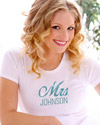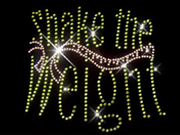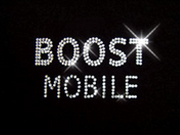Your wedding cake isn’t just a cake – it’s the centerpiece of your wedding. It’s a statement waiting to be made. It’s a way of expressing your own style and tastes. It’s a sentimental tradition that marks you and your sweetie’s journey as husband and wife – and it’s also a delicious way to top off a fun reception spent in the company of family and friends!
The groom and bride should start the planning process by separately painting a picture of their perfect wedding event. This might be an eye-opener. Some couples have a nearly identical vision of their wedding, while others have ideas that are dramatically different. It is very important to resolve these different visions, and create a single image for the perfect wedding celebration.
Once you have a vision for the wedding, write down a list of the most important elements. For some couples, this could be as short as a few items, for others, it will be a long list. Prioritize the list and cut it to no more than 5-7 elements. Once you have prioritized your list, you know where to focus your energies. Start the planning by focusing on what is important to you, and then build the event around the most important elements.
- Start with a Vision - Know what type of wedding will make your perfect day.
- Be Realistic – Perfection is the enemy of excellence. No one will notice the little mistakes.
- Focus on what is Important – In any activity, it is easy to get distracted with details and miss the big picture. Wedding planners understand that if they get the big things right, the rest will go unnoticed.
- Find Vendors you can trust – Most wedding disasters are the result of a vendor who is unprepared. Don't commit to a vendor unless you trust them. Check up on them if necessary.
Timing is everything in events. A great wedding event is properly paced, not rushed, and without long delays that sap the energy of the attendees. So you need to have a general idea of the schedule of the event. It is even a good idea to have a run-through of the wedding. One great idea for starting the wedding is to allow guests to meeting in an area with drinks or hors d'oeuvres prior to the wedding ceremony. This allows early guests to socialize without getting bored, while guests that are running late wont miss the event.
The biggest difference between you and a wedding planner is that the planner has a great rolodex of vendors. The wedding planner knows which vendors are professional, and which don't deliver on their promises. Since you are only having one wedding, you will need to quickly determine which vendors are going to be right for your ceremony. Spend some time asking questions, lots of questions, to your vendors. Listen carefully to what they say, but also listen to what they don't say. Vendors that evade your questions, or don't seem to have answers to your questions may be hiding a surprise, one that will cause problems on your wedding day. It is best to walk away from any vendor who seems uncooperative. Another important tip for dealing with wedding vendors is to only give small deposits and pay the balance upon delivery of services. This will give you the leverage to make sure they deliver, or if not, you can switch with minimal loss.
Finally, a word on finances. Whether you are planning an extravagant event or a shoestring budget, you should keep in mind that the reason for your event is to start on your life journey with your mate. Don't allow the expense of a wedding to become a problem that undermines your marriage. Back in Step 2 you made a list of your priorities. Before you commit to any expenses, you should prepare a budget and then compare it to your priority list. If you are spending a lot of money for something which is not on your priority list, then maybe you should reconsider the expense. Finally, there are always unexpected expenses that come up. Plan for a minimum of 10% unexpected expenses, and have someone you trust hold some extra cash for the big day.










